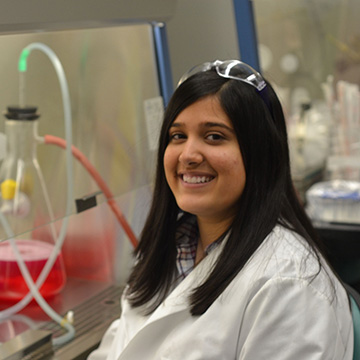Katherine Almasy
Flaviviruses, such as Dengue virus, are known to co-opt several host factors within the host cell endoplasmic reticulum (ER) proteostasis network, which is composed of chaperones and other factors important for protein folding, assembly, and quality control. As the virus begins to translate, replicate, and assemble new virions around the ER membrane, the unfolded protein response (UPR) is activated to increase the folding capacity of the organelle. It is composed of three distinct signaling branches, each of which the virus modulates. The specific function of each UPR branch in the context of viral propagation is not well characterized, largely due to a dearth of tools to selectively modulate each branch. We hypothesize that some of the protein-protein interactions between host proteostasis factors and viral proteins are crucial for viral propagation. Using small molecule modulators of the UPR, the project’s aim is to develop a profile of how selective chemical modification of each branch affects specific protein-protein interactions which are critical for viral propagation. Various transcriptomic and proteomic techniques will also be used to determine which steps in the viral life cycle are affected by the modulation. This work may be extended to other flaviviruses such as Yellow Fever and Zika.
Mentor: Lars Plate, Ph.D.
